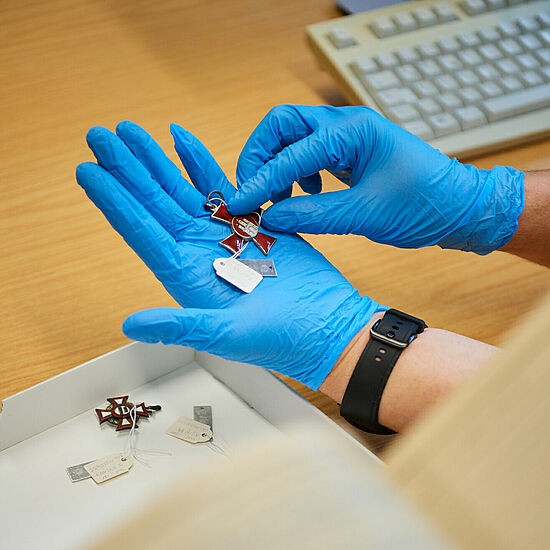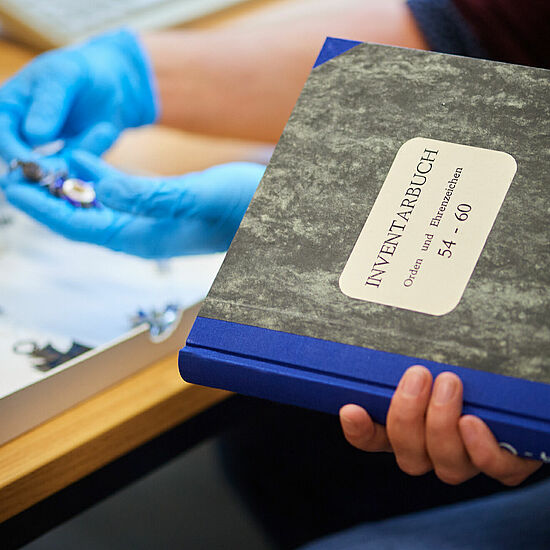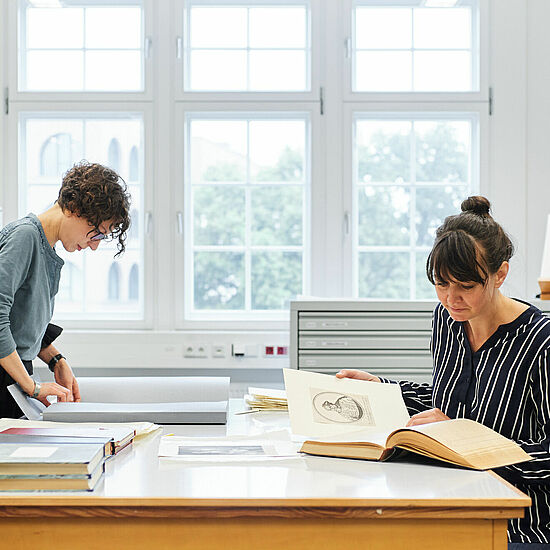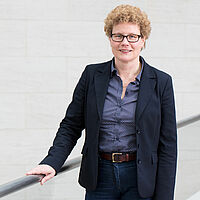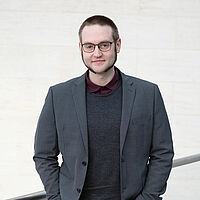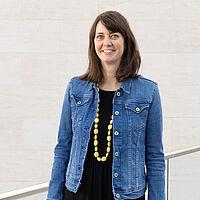Provenance research
The collection of the Deutsches Historisches Museum (DHM) reflects the history of our house. Now containing around 1 million different objects on German history from the Late Middle Ages to the present day, the collection came together from the stocks of the Prussian Zeughaus (armoury), the Museum für Deutsche Geschichte (MfDG) of the German Democratic Republic (GDR), and acquisitions since 1987.
For us as a cultural-historical museum, provenance research is among our most vital core tasks. On the one hand, a clarification of the provenance, use and tradition of objects determines their museal value. On the other, for us as a German museum, it is a guiding principle to systematically verify the details of ownership and the circumstances of the acquisition of objects in the periods of National Socialism, the Soviet Occupation Zone (SBZ), and the GDR for possible expropriation and looting. We feel committed to deal with the legacy of the German history of the 20th century.
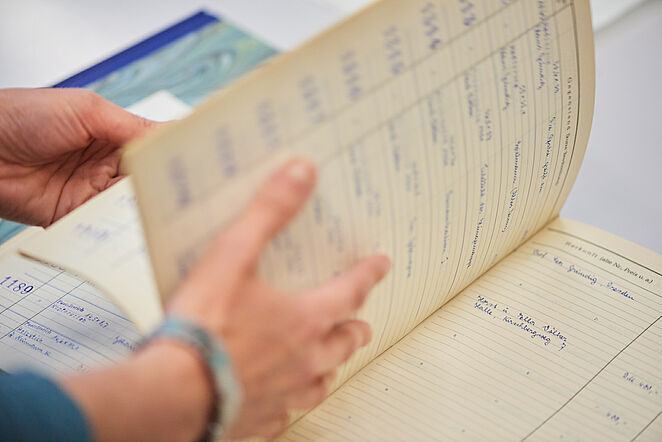
Focal points of provenance research
At the end of 2019, the DHM created two positions for proven experts devoted to the principal areas of provenance research.
Nazi plunder
The expropriation of cultural goods stemming from the disenfranchisement, persecution, expulsion, and murder of Jews in the time of National Socialism is a focal point of our provenance research, whereby further contexts of persecution-related dispossession are also researched. Research on possible Nazi plunder still found in the stocks of the museum is carried out systematically and proactively in order to clarify possible cases of looting and to initiate restitution as the circumstances require. External queries about specific objects are pursued with equal diligence. Objects with gaps in their provenance history that suggest a possible illegal dispossession are published in the Lost Art Database. When an object is proposed to be acquired, its provenance is always examined before it is taken into the museum’s collections.
We are guided in our research on Nazi-related cultural plunder by the ethical principles of the following international agreements:
Expropriation of art and cultural goods during the Soviet occupation and in the GDR
The second focal point of our research refers to cases of expropriation during the time of the Soviet occupation and in the GDR. This extensive field of research results from the transfer of the collections of the Museum für Deutsche Geschichte (MfDG), the nation history museum of the GDR, to the DHM. In this area we also research the stocks of the MfDG – both systematically and on the basis of queries and restitution demands according to the legal principles of the Property Act und Compensation Act.
The two central fields of research differ not only in their legal principles – the initial archival situation and research possibilities are also different. In the case of Nazi plunder, it is often possible to recognise individual objects as potentially incriminated. Changes of ownership and relocations of the objects often remain sketchy despite many different research attempts. Contrarily, the movement of objects during the time of the SBZ and the GDR can often be researched and understood by following whole sets or convolutions of items. The findings, however, cannot always be applied back to individual objects.
At the same time, there are also points of reference between the two fields of research. A systematic approach to research can reveal an overlapping of the two fields. For example, cultural objects that were confiscated during the Nazi period have sometimes reappeared in the collections of the Museum für Deutsche Geschichte of the GDR. Double dispossessions – first stolen during the Nazi dictatorship and then a second time in the GDR – can also be identified.
Objects from the colonial context
Research on objects from colonial expropriation contexts has not been one of our central focal points, because the collections do, in fact, include objects from the colonial context, but up until now none have been found that verifiably belong to such colonial expropriation contexts.
A unique object that has led to extensive research in this field is the Stone Cross of Cape Cross. Originally erected by the Portuguese as a national emblem, it came into the possession of the German Empire at the time when Namibia was part of the colony “German South West Africa”. Namibia laid claim to the cross, and it has meanwhile been returned. In summer 2018, museum experts and historians from Europe and Africa discussed questions of historical justice in this context at a Symposium in the DHM.
War-related relocation of objects from the Zeughaus
Apart from the above areas of provenance research, we also undertake selective research on losses incurred by the Zeughaus that came about in the context of the Second World War, which has resulted in the return of individual objects to the DHM.
Structure and networks
The two above-mentioned experts in provenance research employed in 2019 have meanwhile devoted themselves to all facets of the two main focal points by undertaking systematic research into the collections as well as occasion-related research of specific objects. A constant exchange of ideas and information with colleagues in museums, research institutes and archives in Germany, Europe and abroad is an essential part of their research field. Moreover, basic research projects are conducted in the area of expropriations in the SBZ and the GDR in cooperation with the German Lost Art Foundation. Symposiums such as that on the Stone Cross of Cape Cross were also conducted on other related topics, such as Provenance Research into Cultural Assets Seized in the SBZ and the GDR. This exchange with researchers and experts will continue in the future.
Independent of the research on our own collections, the DHM cooperates in three other databases for international provenance research that were established together with different partners.
